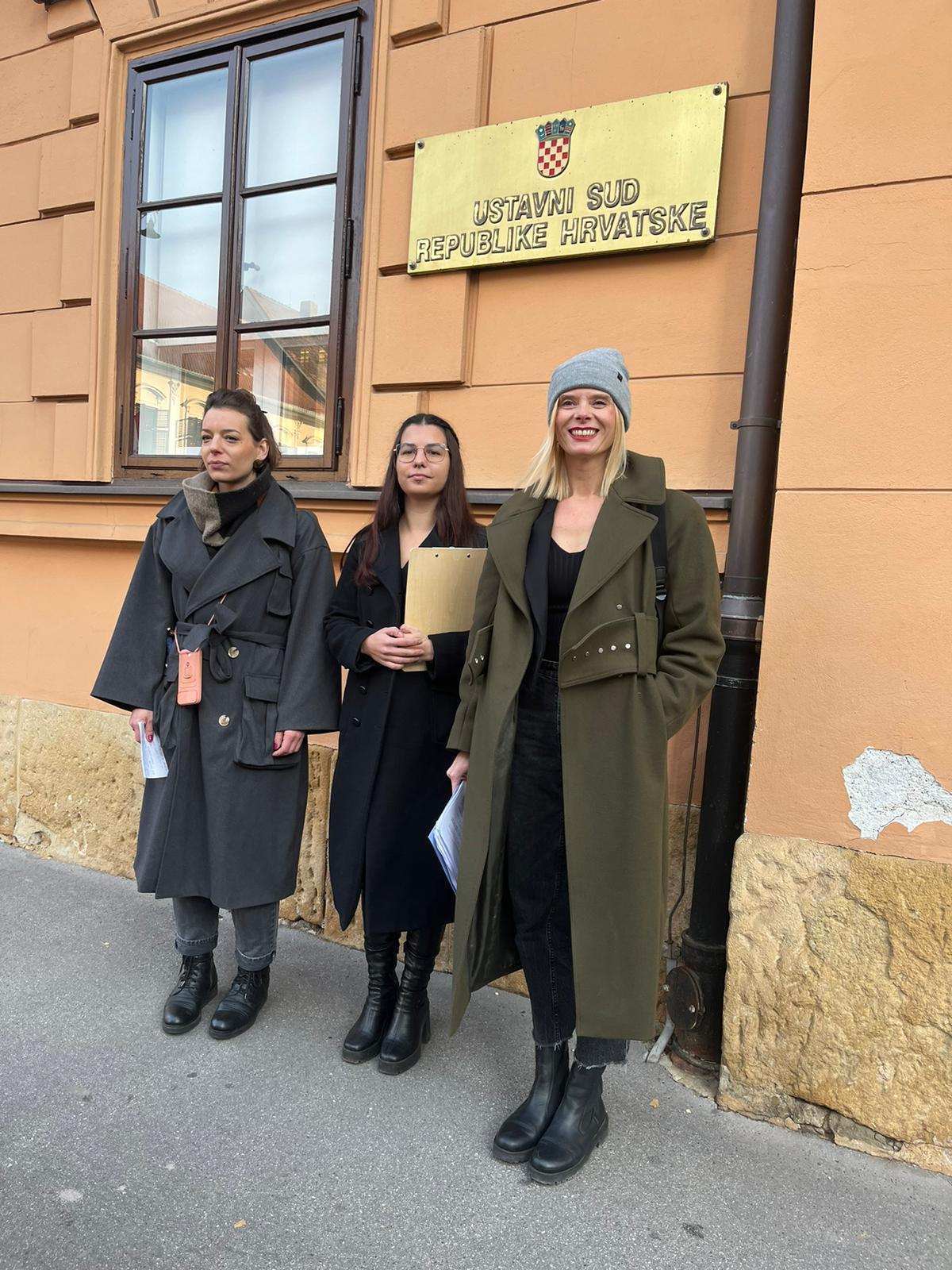Published 20.12.2023. | Tena Mur

Members of one of the most vulnerable groups in our society, users of the guaranteed minimum benefit (GMB), are forced by the state to do forced labor - pointed out on the International Day of Human Solidarity from the Centre for Nonviolence, Peace and Human Rights - Osijek (CZMOS) and the Centre for Peace Studies (CMS).
Namely, the beneficiaries of the guaranteed minimum benefit are single people or households that do not have enough funds to meet basic life needs, nor can they provide these funds with income or the sale of their property. The amount they receive per month is 132.72 euros, and from the first of January it will amount to 150 euros - there is no question that this amount is not enough to live on. However, the Social Welfare Act (SWA) also threatens partially able-bodied and work-capable GMB beneficiaries with the termination of GMB if they do not respond to unpaid work for the common good - free work that does not guarantee them the most basic labor rights. "People who are in a situation where they receive 132.72 euros in order to survive are forced to work, but not in order to earn extra money, but so that this 132.72 euros would not be abolished," emphasized Tea Radović from the Centre for peace studies.
"Such stipulation of financial social assistance in a state that is defined by the constitution as social is questionable from a constitutional and human rights perspective," pointed out Natalija Havelka from the Centre for Peace, Nonviolence and Human Rights - Osijek. Therefore, these two organizations today submitted a request to the Constitutional Court for an evaluation of the constitutionality of the SWA provisions concerning the measure of unpaid work for the common good.
"The implementation of the measure of work for the common good without compensation is not employment or inclusion in the labor market, but forced labor that users must accept, otherwise their guaranteed minimum compensation will be completely or partially canceled. This measure does not encourage their inclusion in the labor market. A person who is forced to work 4 hours a day for a whole month cannot at the same time look for a job, freely choose his employment or participate in retraining programs", stressed Havelka and added that according to current data from the Ministry of Labour, Pension System, Family and Social Policy in 2023 46 final decisions were made on the cancellation or reduction of the guaranteed minimum compensation due to non-response to community service without compensation. They regain the right to GMB only after six months.
Although the measure existed earlier, its implementation to a greater extent began with the adoption of the new Social Welfare Act, which has been in force since January 2023, because it made the implementation of the measure the responsibility of local and regional (regional) self-government units. Radović pointed out that CPO and CMS do not stop at submitting requests for constitutionality assessment, but also implement the Impact4values project: Work for the common good without compensation - Social (NOT) justice?! which aims to delete disputed provisions from SWA: "We consider it shameful that in the 21st century a country that guarantees human rights in the Constitution implements forced labor", she noted. As part of the project, they are investigating how and where the measure is implemented because they had clear indications, and they have already been confirmed, that the measure is unevenly implemented in practice and that the local and regional (area) self-government units that implement it, as well as the regional offices The Croatian Institute for Social Work, which decide on the abolition or reduction of GMB, interpret SWA in different ways. In addition, CPO and CMS provide support to users who are invited to work for the common good without compensation by providing free legal assistance.
Sandra Kasunić from CMS commented on the position of economic and social rights in the Republic of Croatia, noting that they are still treated as second-rate, even though they are guaranteed by the Constitution. "The right to work, the right to adequate working conditions, the right to social protection and other economic and social rights are the same as civil and political rights, i.e. freedom of association, freedom of speech, the right to life and other rights," she stressed.
Kasunić added that the Republic of Croatia, through its Constitution and ratification of international documents, undertook to respect, protect and fulfill economic and social rights, and that this problem is an example of the inseparability of economic and social rights from civil and political ones.
The request for constitutional review was also supported by lawyer Sanja Bezbradica Jelavić, who pointed out that social justice is one of the fundamental values of the Republic of Croatia - and everyone is obliged to respect and protect it. In this sense, she pointed to the importance of civil society organizations as defenders of constitutional values that react in situations when the legislator fails to do so. "When the law on social welfare has a provision that is unconstitutional, it breaks the bond of efficient rule of law that connects the Constitution and every citizen of the Republic of Croatia," she concluded.
We are implementing the project within the framework of the I4V program.
The project is co-financed by the European Union.
The project is co-financed by the Office for NGOs of the Government of the Republic of Croatia.